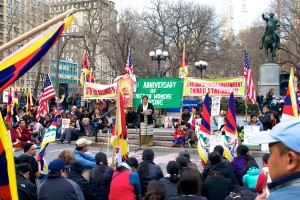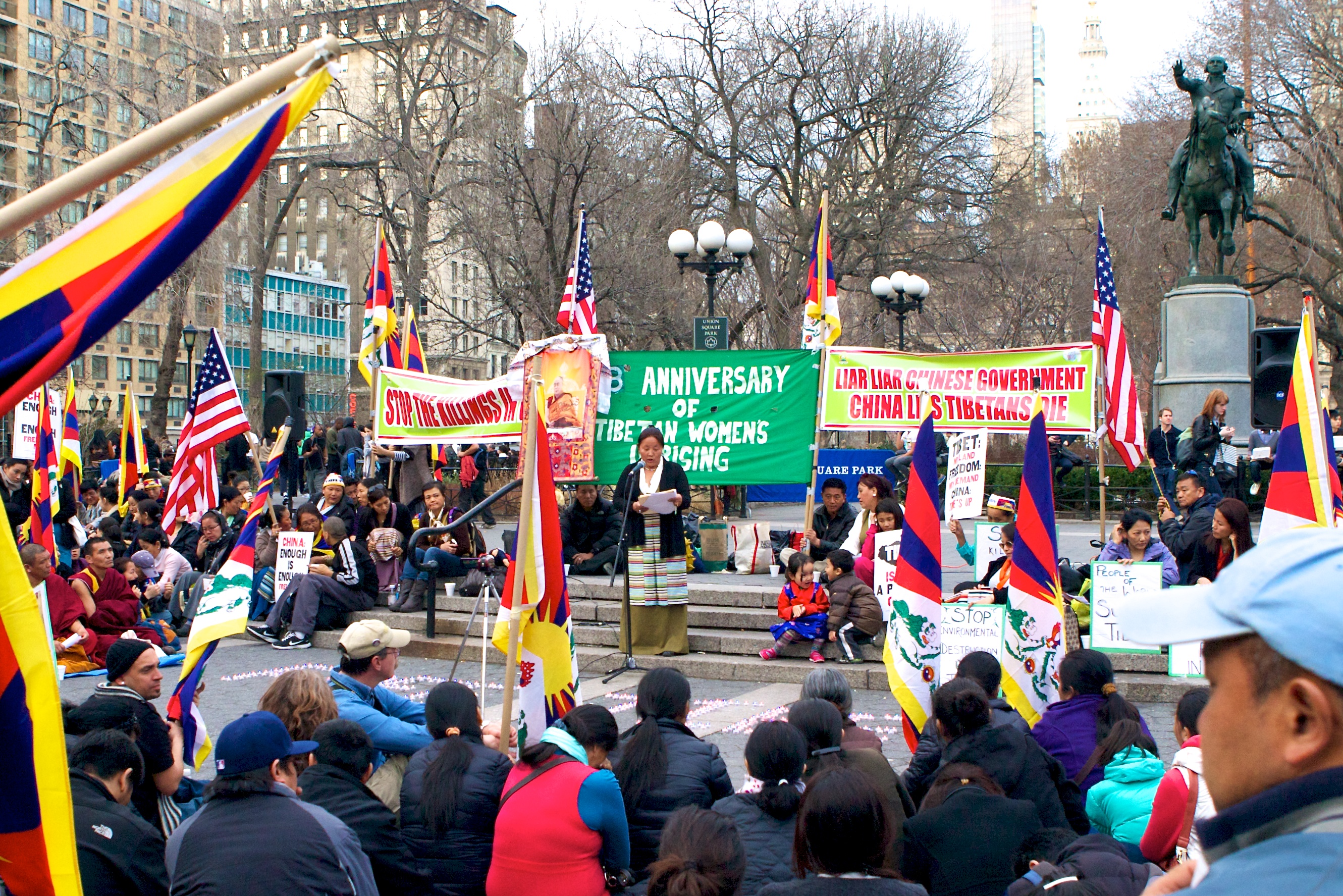It was a normal afternoon at a vegetable market in Machu county in eastern Tibet on March 3, until a nineteen year old girl ran into its midst, engulfed in flames. She threw her fist up in the air a few times as she burned herself to death.
Voice of America reported that her body was taken by the Chinese officials and has so far not been returned back to her family. Tsering Kyi, a student, was the 24th Tibetan to self-immolate in protest against the Chinese rule in Tibet in the last year, reports the Chicago Tribune. As protests around the world continue, the Chinese government is trying numerous strategies to suppress it. And a significant move in this regard was to arrest and silence the writers, artists and media.
“Our self-confidence is weakening under foreign occupation, my fellow Tibetans of the same blood and flesh”, wrote Tashi Rabten, the Tibetan author. Rabten was sentenced to four years in prison by the Chinese Government in 2011 after publishing his book ‘Written in Blood’ that allegedly gave descriptive notes of the sufferings of Tibetans under Chinese regime. The whereabouts of his detention remains unknown to the outside world.
Kunchok Tsephel Gopey, a former official for the Chinese Government’s environmental department set up the influential Tibetan literary website, Chomei. Reporters without borders record that he was sentenced to prison by the Chinese authorities. Dhondup Wanchen, a Tibetan Filmmaker was sentenced to 15 years in prison. On March 9, the eve of the anniversary of the failed 1959 Tibetan uprising against Chinese rule, thousands of protesters marched towards the UN headquarters in New York demanding the release of the filmmaker.
Tenzin Sangmo, reporter for Voice of Tibet, says, “They are the people who can speak the inner voices of the Tibetans using their knowledge. They can use their creativity for the general public’s voice.” She added that they are the group who can influence the masses most, so it is important for the Chinese government to stop them.
Lobsang Gawa, a Tibetan resident in the UK, says that the power of the media is something that the Chinese Government fears. “I am very scared to even call my people back home, because the telephone calls and conversations are monitored [by the Chinese Government].” He added that he is extremely sad about the whole situation.
According to the International Campaign for Tibet, an organisation that works to promote human rights and democratic freedom for the people of Tibet, the Chinese government has systematically blocked news of arrests, disappearances and torture of Tibetans in the region since 2008. People who express their views or spread the word on the issues are in significant danger, says a report from the organisation. However, the Chinese government finds it increasingly difficult to curb the flow of information as more bilingual, tech savvy youngsters get in on the act. Interestingly, Sangmo attributes this to Chinese mobile phones. “The Chines

“I want to ask for your help in the release of my husband — in the release of my husband and in the release of other political prisoners in Tibet,” said Lhamo Tso, wife of Dhondup Wanchen at a protest in New York last week, AFP reports.
Pen International, an organisation that promotes literature and defends freedom of expression, reports that: “Writers, singers, and artists promoting Tibetan national identity and culture are amongst those to have been targeted, and many have been handed down lengthy prison terms.” In some cases the detained are not charged even months after the arrest. In other cases the charges remain unclear.
Stephanie Brigden, Director of Free Tibet, a UK based non-profit organisation points out that the protesters may, in one way or another, be influenced by the writers and artists.
Ethnic Tibetans accuse the Chinese regime of religious oppression and say that their culture is being eroded by the Chinese. Beijing has denied this, saying that Tibetans enjoy religious freedom and that Tibet has benefited from its investments in the area. According to the Indian newspaper, The Hindu, Chinese Premier Wen Jiabao accused the exiled Tibetan leader the Dalai Lama and the government in exile in Dharamsala, India, of being the root cause of the protests and separating the Tibetans from China.
On March 4, another protest flared up. Students in Rebkong, eastern Tibet protested after they were given text books in Chinese by ripping apart the books and calling for language rights. Free Tibet reports that the textbooks were previously in Tibetan, and have now been changed.
In an article published by the Guardian, John Grittings reviews a book by Wang Liziong and Tering Shakya, the former a Chinese scholar-activist and the latter a Tibetan historian. “Both scholars warn that Tibet’s cultural and national identity has been dangerously eroded, and that China’s rushed economic development only benefits a minority.”
Perhaps silencing the writers and artists is the most effective method for the Chinese regime to control the uprising in Tibet. So far the regime has managed to keep the lid on most fronts, even with the penetrative power of the internet and new media. However, this action has the potential to destroy a culture. The Chinese government is facing criticism from across the globe over the issue. Yet, so far, has refused to significantly change in its stance.
Main Image: Alan Chan, Flickr








